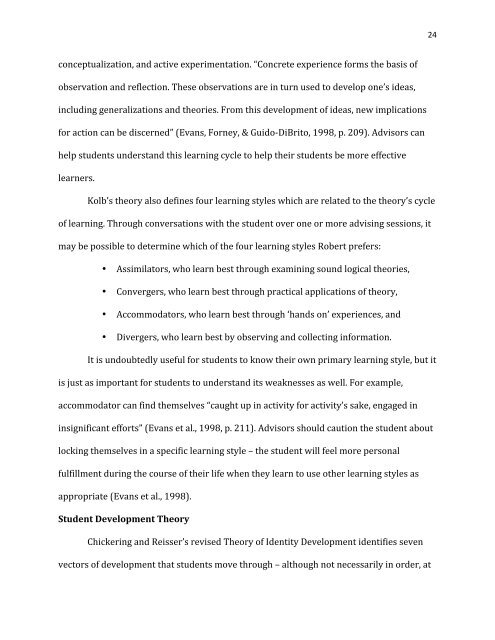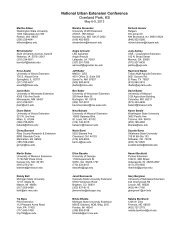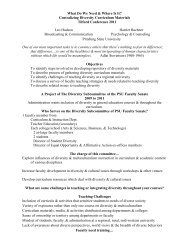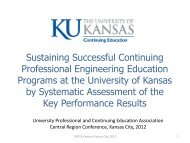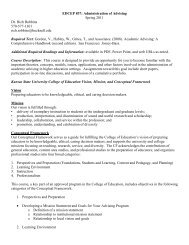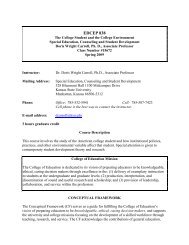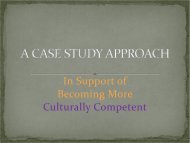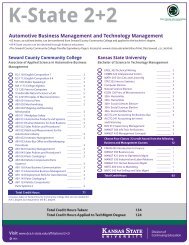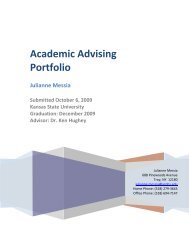David Freitag – KSU Capstone Project - K-State Division of ...
David Freitag – KSU Capstone Project - K-State Division of ...
David Freitag – KSU Capstone Project - K-State Division of ...
You also want an ePaper? Increase the reach of your titles
YUMPU automatically turns print PDFs into web optimized ePapers that Google loves.
conceptualization, and active experimentation. “Concrete experience forms the basis <strong>of</strong><br />
observation and reflection. These observations are in turn used to develop one’s ideas,<br />
including generalizations and theories. From this development <strong>of</strong> ideas, new implications<br />
for action can be discerned” (Evans, Forney, & Guido-‐DiBrito, 1998, p. 209). Advisors can<br />
help students understand this learning cycle to help their students be more effective<br />
learners.<br />
Kolb’s theory also defines four learning styles which are related to the theory’s cycle<br />
<strong>of</strong> learning. Through conversations with the student over one or more advising sessions, it<br />
may be possible to determine which <strong>of</strong> the four learning styles Robert prefers:<br />
• Assimilators, who learn best through examining sound logical theories,<br />
• Convergers, who learn best through practical applications <strong>of</strong> theory,<br />
• Accommodators, who learn best through ‘hands on’ experiences, and<br />
• Divergers, who learn best by observing and collecting information.<br />
It is undoubtedly useful for students to know their own primary learning style, but it<br />
is just as important for students to understand its weaknesses as well. For example,<br />
accommodator can find themselves “caught up in activity for activity’s sake, engaged in<br />
insignificant efforts” (Evans et al., 1998, p. 211). Advisors should caution the student about<br />
locking themselves in a specific learning style <strong>–</strong> the student will feel more personal<br />
fulfillment during the course <strong>of</strong> their life when they learn to use other learning styles as<br />
appropriate (Evans et al., 1998).<br />
Student Development Theory<br />
Chickering and Reisser’s revised Theory <strong>of</strong> Identity Development identifies seven<br />
vectors <strong>of</strong> development that students move through <strong>–</strong> although not necessarily in order, at<br />
24


